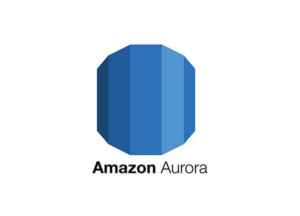(AnsataCrucs/Shutterstock)
AWS at this time introduced two new database providers aimed toward offering low-latency knowledge processing that may help transactions anyplace on this planet. The brand new providers, together with Postgres-flavored Aurora DSQL and DynamoDB world tables, put AWS in direct competitors with Google Cloud’s Spanner, which additionally makes use of atomic clocks to make sure distant transactions do not get out of order.
For years, Google Cloud has been the dominant power in a small however vital area of interest of the relational database market that requires low latency and transactional consistency for database operations happening anyplace on the planet (or off it). ).
The tough architectural problem has all the time been how one can account for time lag between nodes in a globally distributed database. Whereas the pace of sunshine (virtually 300 million meters per second) is certainly quick, it isn’t quick sufficient to help distributed nodes in a database in the way in which wanted.
For sure use circumstances, equivalent to banking, firms have overcome bodily boundaries through the use of clever mechanisms to make sure that the order of database transactions will not be synchronized. Google Cloud makes use of atomic clocks, whereas different databases, equivalent to CockroachDB and YugabyteDB, have used software program, equivalent to Raft consensus algorithmto make sure consistency.
With its new Aurora DSQL providing launched at this time, AWS has adopted new applied sciences and strategies to beat the 2 challenges of distributed databases: how one can obtain sturdy consistency with low latency throughout geographically disparate nodes and synchronize servers with microsecond precision internationally. The corporate explains:
“To realize sturdy consistency throughout a number of areas with low latency, Aurora DSQL decouples transaction processing from storage to beat the constraints of present approaches, which had been restricted by info being transmitted backwards and forwards a number of occasions on the pace of sunshine,” says the corporate. of their press launch.
“To beat this, Aurora DSQL solely verifies every transaction at commit time and, at commit time, parallelizes all writes throughout all areas to offer a multi-region database with sturdy consistency and quick writes,” proceed. “To make sure that every area sees all database operations within the actual order they occurred, Aurora DSQL makes use of Amazon Time Sync Service, which added {hardware} reference clocks on every occasion (EC2), synchronizing them with related atomic clocks. by satellite tv for pc to offer correct time on the microsecond degree. inside any a part of the world.”
AWS has been engaged on a globally distributed model of Aurora for a minimum of three years. The corporate he informed this journalist on the re:Invent convention in 2021 that just about had world reads coated, however was nonetheless engaged on scaling world writes, which is a sophisticated drawback.
Aurora DSQL is a serverless providing, requiring minimal operational overhead for shoppers. AWS says it gives 99.999% availability throughout a number of areas, nearly limitless scalability, and compatibility with current functions utilizing a Postgres database.
AWS pitted Aurora DSQL in opposition to Google’s Spanner to see the way it compares. The corporate says that for a primary 10-transaction SQL assertion, Aurora DSQL was capable of ship 4x the efficiency for each learn and write. It will likely be fascinating to see how the 2 databases compete in additional advanced workloads sooner or later.
AWS carried out the same functionality with DynamoDB, its in style NoSQL database.
“It seems that relational databases aren’t the one ones that profit from multi-region, strongly constant, and low-latency capabilities,” AWS CEO Matt Garman stated throughout at this time’s keynote. “That is why I am additionally excited to announce that we’re including the identical sturdy, multi-region consistency to DynamoDB world tables. So now, whether or not you are working SQL or NoSQL, you may get the very best of all worlds: multi-region active-active databases.”
Associated articles:
AWS cancels serverless Postgres service that scales to zero
AWS working to scale Aurora DB writes globally, like Spanner
Google Cloud provides Spanner a PostgreSQL interface


